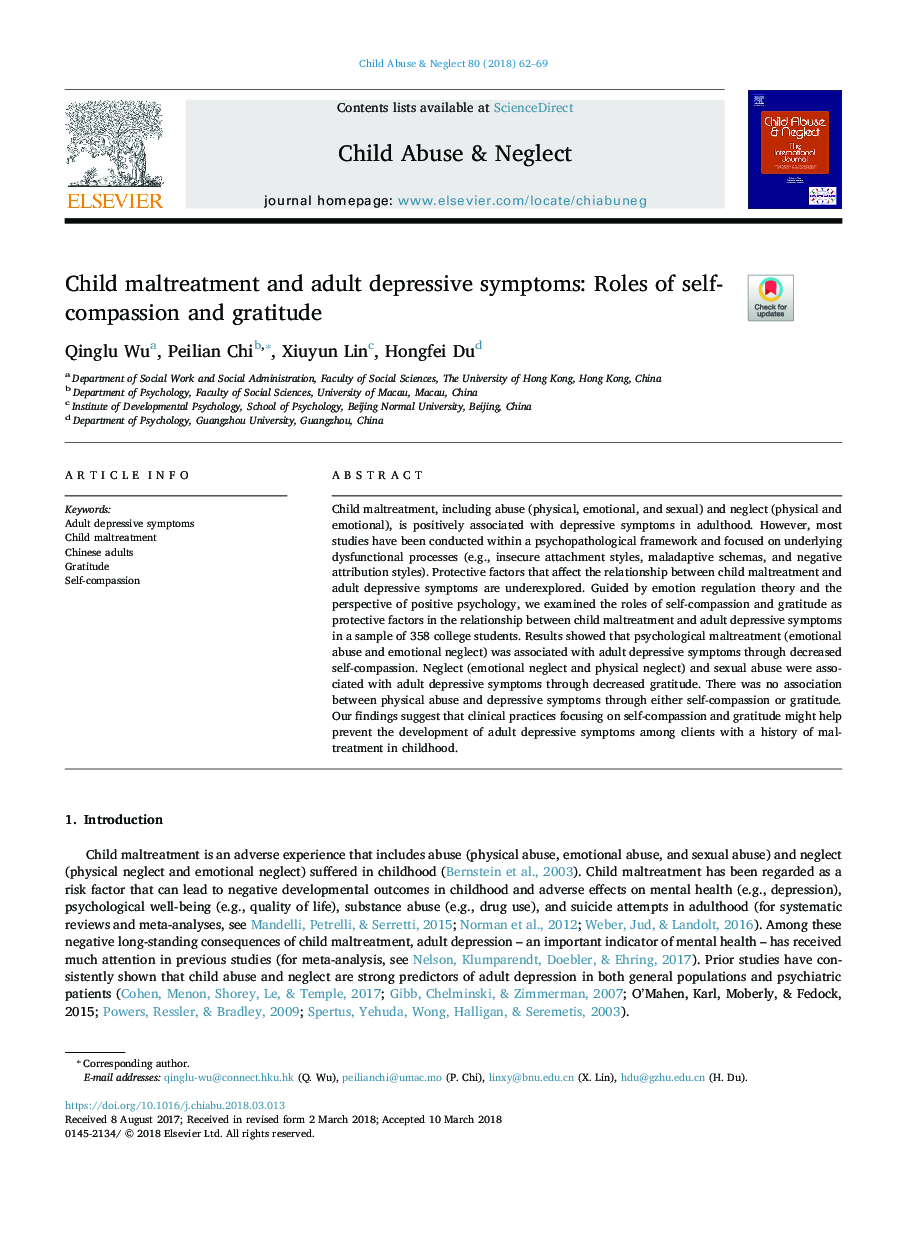| Article ID | Journal | Published Year | Pages | File Type |
|---|---|---|---|---|
| 6831904 | Child Abuse & Neglect | 2018 | 8 Pages |
Abstract
Child maltreatment, including abuse (physical, emotional, and sexual) and neglect (physical and emotional), is positively associated with depressive symptoms in adulthood. However, most studies have been conducted within a psychopathological framework and focused on underlying dysfunctional processes (e.g., insecure attachment styles, maladaptive schemas, and negative attribution styles). Protective factors that affect the relationship between child maltreatment and adult depressive symptoms are underexplored. Guided by emotion regulation theory and the perspective of positive psychology, we examined the roles of self-compassion and gratitude as protective factors in the relationship between child maltreatment and adult depressive symptoms in a sample of 358 college students. Results showed that psychological maltreatment (emotional abuse and emotional neglect) was associated with adult depressive symptoms through decreased self-compassion. Neglect (emotional neglect and physical neglect) and sexual abuse were associated with adult depressive symptoms through decreased gratitude. There was no association between physical abuse and depressive symptoms through either self-compassion or gratitude. Our findings suggest that clinical practices focusing on self-compassion and gratitude might help prevent the development of adult depressive symptoms among clients with a history of maltreatment in childhood.
Related Topics
Health Sciences
Medicine and Dentistry
Perinatology, Pediatrics and Child Health
Authors
Qinglu Wu, Peilian Chi, Xiuyun Lin, Hongfei Du,
